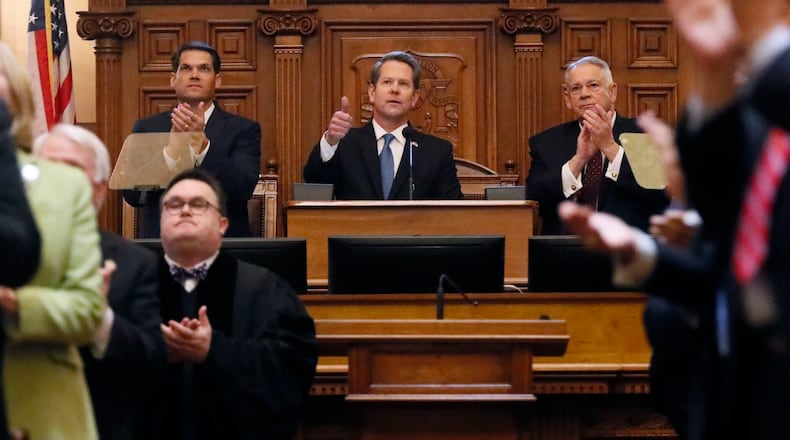When Gov. Brian Kemp revealed his plans for the state budget this week, teacher pay raises grabbed much of the attention, but a smaller line item could have a much bigger impact on students.
Kemp wants to steer an extra $8.4 million to the Apex program to address a problem that undermines schooling to an extent that many are only beginning to realize: unaddressed mental health issues in students.
The money for the little-known program is likely a fraction of what’s needed to fix what many health experts say contributes to schoolhouse violence and what many teachers say is a major obstacle to learning.
Still, observers say it marks a major shift in a conversation that, until recently, mainly faulted teachers for poor academic performance.
“We have blamed teachers for what has been sent to them, and teachers have no control over who walks in the door,” said Joyce Chandler, a recently retired lawmaker. “I think we’re seeing a turnaround in the Legislature.”
Chandler, who served on the House Education Committee, watched the debate shift over the years, from bashing teachers to recognizing that some things were beyond their control. A former school counselor, Chandler said she was responsible for 400 students when she retired in 1999, but she’s heard of higher ratios: one South Georgia counselor reported having 800 students.
Rep. Rick Jasperse, R-Jasper, is among those whose eyes are open.
His daughter has been teaching for five years, and she's shared stories about discipline in the schools. This summer, he led a House safety study committee that revealed the breadth of mental health issues in the schools.
Jasperse said he spoke with Kemp about it. “We need to roll our sleeves up and get over saying there’s not a problem or there’s nothing we can do about it.”
Kemp’s contribution to the Apex budget — the new money would only be for high schools — is about a 60 percent increase. It builds on what predecessor Nathan Deal did last year, when he added $4.3 million to the existing $9.5 million for Apex. If approved by lawmakers, Kemp and Deal will have more than doubled the program in one year.
Apex has been paying community-based mental health providers to service schools since 2015. Danté McKay, who oversees it, said data suggests that students who’ve received services are absent from school less and are less likely to be suspended or otherwise disciplined.
Chris 180, one of the groups funded by Apex, is serving about 400 students in 27 metro Atlanta schools. Cindy Simpson, an executive with Chris 180, said they’ve recorded an 11 percent to 42 percent increase in attendance among children served and a 17 percent to 38 percent decrease in disciplinary referrals.
Reducing absenteeism is crucial. Research has shown a connection between excessive absenteeism and a substantial rise in the dropout rate.
But many students will go unserved even with this budget increase.
Apex is operating in fewer than 1 in 5 of Georgia's 2,300 schools. According to federal estimates, 1 in 5 children have a diagnosable mental health problem, and other research suggests that about 80 percent of them aren't getting services. With nearly 1.8 million students in Georgia, that suggests that close to 300,000 have unaddressed mental health needs. With Kemp's addition to the Apex budget, that's less than a hundred dollars for each of them.
It costs Chris 180 an average $4,000 to serve each student, with a mix of state, federal and donor dollars.
“We have a long way to go,” said Charlotte Booker, an elementary school teacher and the new president of the Georgia Association of Educators. “But we are appreciative that we’re moving in the right direction.”
OUR REPORTING
The Atlanta Journal-Constitution has the largest team covering Georgia’s Legislature and offers expertise on issues that matter to taxpayers.
Get complete daily coverage during the legislative session at www.ajc.com/politics.
Follow us on Twitter via @AJCGaPolitics and on Facebook at AJC Georgia Politics.
About the Author
Keep Reading
The Latest
Featured


